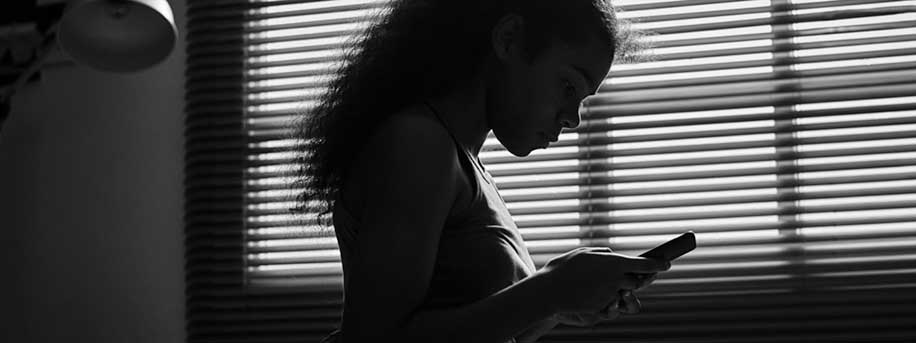TARGETING: The youngsters reported an average of 3.2 daily experiences of internet racial discrimination, algorithmic bias or exposure to traumatic racial events…
By Eric Olsen
Black teenagers in the United States experience an average of six race-related online encounters every day, including three instances of online racism.
These daily experiences, from algorithmic bias to traumatic event videos, are linked to increased symptoms of anxiety and depression the next day.
This is according to findings of a study led by USC Rossier School of Education’s Professor Brendesha Tynes, and published in JAMA Network Open. It was co-authored by Taylor McGee, assistant professor at Christopher Newport University, and Devin English, associate professor at Rutgers School of Public Health. The research team analysed data from a nationally representative group of 141 Black and Black multiracial adolescents ages 11–19, using a seven-day diary method as part of the National Survey of Critical Digital Literacy.
Unlike past studies that relied on long-term recall of discrimination over months or years, this project used an intensive daily diary design.
Adolescents completed short online surveys each evening for seven consecutive days in December 2020, reporting any race-related online experiences in the past 24 hours and their current symptoms of anxiety and depression. This approach allowed researchers to capture the immediate, day-to-day impact of digital racism on mental health.
Through their analysis of the data, the team found that online racism is common. Teens reported an average of 3.2 daily experiences of online racial discrimination, algorithmic bias or exposure to traumatic racial events.
Some adolescents reported being targeted with doctored or deepfake videos—videos that have been digitally altered or generated to misrepresent someone or something to spread false information—meant to demean their race. Encounters with photo filters that lighten skin were also reported.
The way teens come across this content is often through biased algorithms that produce biased search results. The result of these encounters is that the adolescents reported significantly higher next-day anxiety and depressive symptoms.
Tynes and her fellow researchers also looked at the impact of the teens’ encounters with positive race-related experiences, including encountering messages that affirmed participants’ heritage and/or culture as well as educational sites that documented the contributions of Black Americans who have built and transformed U.S. society. The study participants reported viewing 2.8 of these types of experiences per day. This content was not associated with any mental health outcomes.
“Our research suggests that algorithms that power daily racist experiences online can undermine adolescent mental health,” said Tynes. “It also shows that Black teens are especially harmed by these encounters and that immediate interventions and policy changes are needed to address algorithmic bias and protect young people from all types of online racism.”
The study underscores the need for researchers, policymakers and tech companies to account for the mental health consequences of online racism. It also calls attention to the growing role of manipulated media, including deepfakes, in perpetuating harm. – Science X































